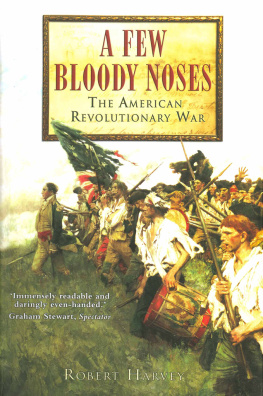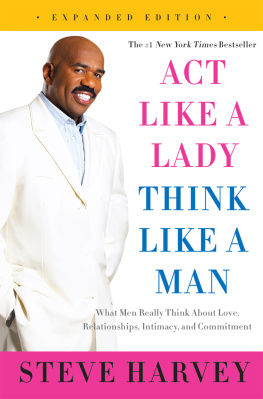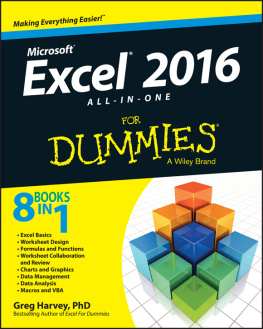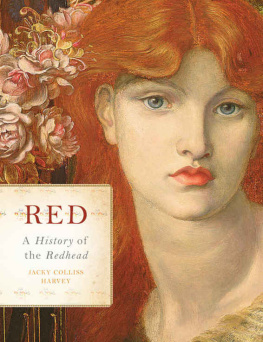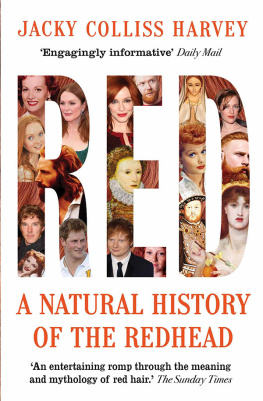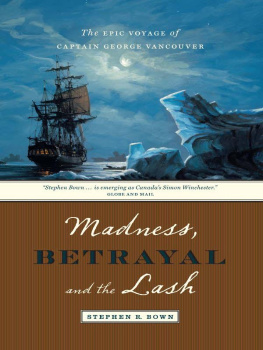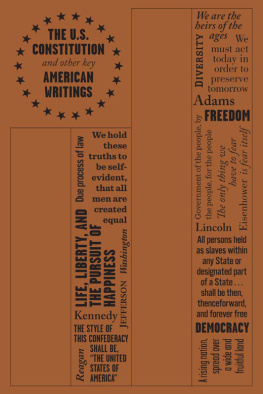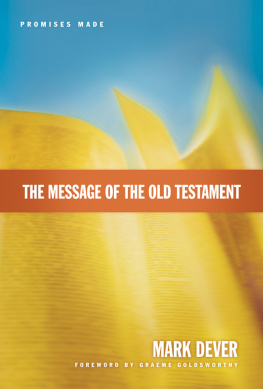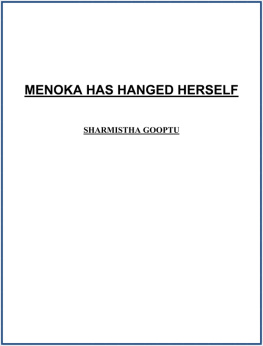R OBERT H ARVEY has been a columnist for the Daily Telegraph, an assistant editor of The Economist and an MP who served for three years on the House of Commons Foreign Affairs Committee.
Praise for A Few Bloody Noses
Very readable the military tactics of the war are really well described.
John Bruton, former Irish Prime Minister, Irish Independent
An excellent work of history and a ripping read.
Scotsman
A full-scale account of the origins, progress and conclusion of the American War of Independence, disputing much of the previously accepted wisdom about these events... explodes or at least modifies many of the accepted generalisations... Harvey airs many aspects of the war that have been swept under American traditional quilts for too long, and he gives British readers a fresh and lively look at a war they have often preferred to forget.
John Ure, Times Literary Supplement
Fascinating... Harveys first triumph is in outlining the many successes and ultimate failure of British military strategy... Harveys other great success is in bringing to light episodes that American history prefers to forget.
Michael Carlson, Financial Times
Harvey shines when he steps on to the battlefields. His descriptions of toe-to-toe tactics as well as the strategic consequences of each significant fight are superb. Harvey is clear and crisp... Harvey wields his pen like a sabre, slashing with gusto at cant and received wisdom, as he leads an exhilirating charge into history.
Ryamond Seitz, ex-US ambassador to London, Daily Telegraph
Immensly readable and daringly even-headed... one of the best overviews of the struggle in print.
Graham Stewart, Spectator
Shows great verve and commitment. The result is a clear and bracing narrative with enough shrewd analysis to make the overall picture full and subtle accessible and lively.
Professor Denis Judd, BBC History magazine
Vigorously told and reasonably provocative... slashes at the mythic underbrush... deflates conventional accounts... Harvey is excellent in his characterisations of the political and military leaders on both sides of the war, major and minor.
Woody West, The Washington Times
Takes on a number of myths successfully... the book is most thought provoking when Harvey draws parallels between the British experience on the revolution and Americas in Vietnam... entertaining... with a challenging rhetoric and compelling narrative style.
David Hyde, New York Sun
It is to Harveys credit that he makes so much of the book, which is concerned with the strategy and details of the many battles, so interesting and readable a very fine, clear narrative.
Brian Maye, Irish Times
Sound and intriguing... a great read.
Professor Christian Day, Syracruse University, New York
A challenging book.
US Booklist
His thoughtful arguments explore the complexities of both American and British points of view, and offer American readers a new perspective on the crucial conflict.
US Publishers Weekly
A FEW
BLOODY NOSES
T HE A MERICAN
R EVOLUTIONARY W AR
Other titles by the same author
BLUEPRINT 2000 (editor)
CLIVE: THE LIFE AND DEATH OF A BRITISH EMPEROR
COCHRANE: THE LIFE AND EXPLOITS OF A FIGHTING CAPTAIN
THE FALL OF APARTHEID: THE INSIDE STORY FROM SMUTS TO MBEKI
FIRE DOWN BELOW: A JOURNEY ACROSS LATIN AMERICA
GLOBAL DISORDER: HOW TO AVOID A FOURTH WORLD WAR
LIBERATORS: SOUTH AMERICAS SAVAGE WARS OF FREEDOM , 18101830
PORTUGAL: BIRTH OF A DEMOCRACY
THE RETURN OF THE STRONG: THE DRIFT TO GLOBAL DISORDER
THE UNDEFEATED: THE RISE, FALL AND RISE OF GREATER JAPAN

Constable & Robinson Ltd
3 The Lanchesters
162 Fulham Palace Road
London W6 9ER
www.constablerobinson.com
First published in the UK by John Murray (Publishers) Ltd 2001
This revised paperback edition published by Robinson, an imprint of Constable & Robinson Ltd 2004
Copyright Robert Harvey 2001, 2004
The right of Robert Harvey to be identified as the author of this work has been asserted by him in accordance with the Copyright, Designs and Patents Act, 1988
All rights reserved. This book is sold subject to the condition that it shall not, by way of trade or otherwise, be lent, re-sold, hired out or otherwise circulated in any form of binding or cover other than that in which it is published and without a similar condition including this condition being imposed on the subsequent purchaser.
A copy of the British Library Cataloguinag in
Publication Data is available from the British Library
ISBN 1-84119-952-4
eISBN 978-1-47210-796-1
Printed and bound in the EU
1 3 5 7 9 10 8 6 4 2
For Cherry, Andrew, Henrietta and Hugo
Acknowledgements
I must declare a small family interest in the American War of Independence on both sides of the British argument: George Grenville, the prime minister whose Stamp Act was widely credited as having started the chain of events that led to the war, is a direct ancestor of mine, while his brother-in-law, William Pitt the Elder, Earl of Chatham, who passionately opposed British policy, was a collateral forebear, as was Thomas Grenville, who helped to initiate the peace moves that ended the war. Another prime minister before the war, the Marquess of Rockingham, who also ended it, is a direct ancestor through the Fitzwilliam family. I myself have always been fascinated by how the war divided British opinion, for and against: as with the Vietnam War, it was lost as much in the mother country and globally as in the actual theatre of hostilities.
I hope these connections do not predispose me to devote too much of this book to the British side; I have tried to be as balanced as possible in these pages. But having been brought up with the portraits and books of these men, I have always wanted to write on the subject, and have finally fulfilled my ambition.
There is, of course, a vast literature on the War of Independence. There are excellent general histories and a wealth of brilliant specialist scholarly studies which I have enjoyably worked my way through during three years to try to write my own version. Why add to them? As I undertook the research, I uncovered an enormous amount of material that seemed to challenge the conventional view of the war in almost every field why it happened, who was winning when, the characters of the principal protagonists, the role of the Indians (as the native Americans were referred to then and so will be referred to here) and black slaves, the nature of the American Revolution, and so on.
I felt that this protracted, very bloody and epic conflict, full of colourful characters and events, which culminated in one of the formative events in world history, the founding of the United States of America, justified an attempt to synthesize the new scholarship into a narrative history that I have tried to make as compelling as possible. This is not so much historical revisionism as using modern scholarship (most of it American) to recast a perhaps outdated and even polemical common perception of what the war was really about.
All errors and judgements are, of course, mine alone; but I hope I have contributed to an understanding of what was, after all, arguably the worlds only successful and enduring revolution (the seventeenth-century English Revolution having of course been reversed, and the 1688 Glorious Revolution having been more of a palace coup than the true thing). The result was, eventually, the creation of the most powerful country the world has ever known.
Next page
